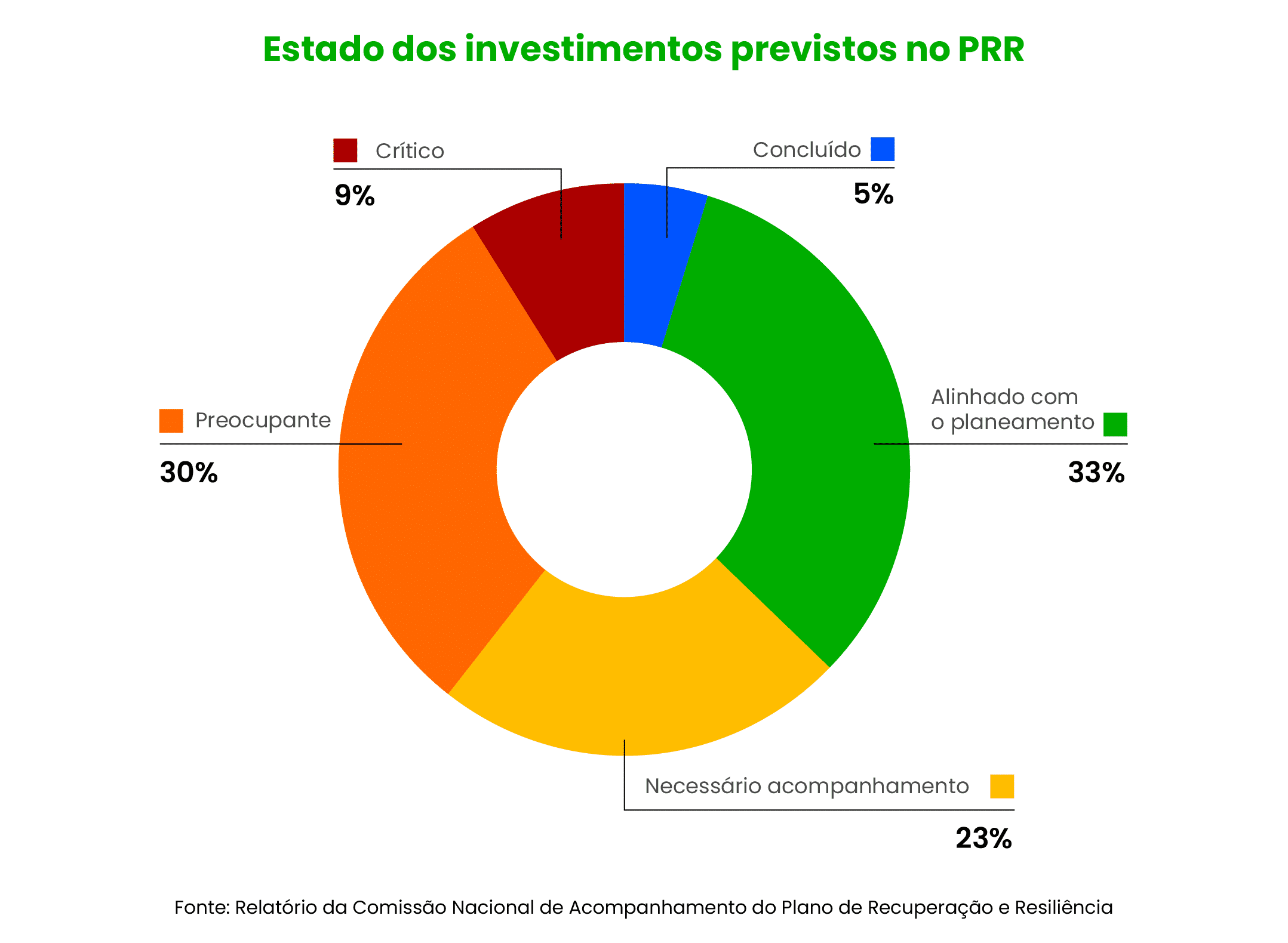Only 33% of PRR measures considered “aligned with planning”
Portugal’s National Commission for Monitoring the execution and spending of Brussels’ ‘bazooka’ (Plan for Recovery and Resilience, or PRR) has flagged up what the country was repeatedly told in the past ‘could never happen’ – an increasingly poor performance in managing/ spending finite funds that ‘will never be repeated’.
As television news channels are reporting today “39% of PRR measures are in a worrying or critical state”.
Making excuses for the ‘change in government’ which will understandably have slowed progress down, the commission stresses that “it is possible to see that the number of measures classified as “worrying” has increased compared to the same period last year, from 23% to 30%, as well as the critical ones, whose proportion has risen from 3% to 9%”.
Thus the diplomatically worded message from the commission’s president Pedro Dominginhos that it would be “appropriate for the government to analyse whether it is feasible or if it is possible, guaranteeing compliance and the necessary liquidity, to extend the deadline by three or six months” – additional months which he believes “would be fundamental”.
Bottom line: the commission recommends that “the possibility be studied, in accordance with regulations in force, and in close liaison with the European Commission, that investments with an end date of December 2025 can be extended until June 2026, with a case-by-case analysis and duly justified.”
This is certainly not the first sign that funding execution was not working on the well-oiled wheels of Portuguese efficiency – but now we are getting much ‘closer’ to the deadlines that really count.
Instead of simply being ‘late’, or ‘performing below what was forecasted’, the country is in danger of crashing out of the programme with noble ‘good intentions’ unachieved.
“We have several investments that will be concluded by contract in December 2025 and it’s essential to analyse them”, explains Pedro Dominginhos. For example, the payment request scheduled for December 2025 has 143 targets and milestones, “more than we’ve met so far”. It also “has €3.2 billion euros involved” (or not, if the homework hasn’t been done…)
As to the nitty-gritty, this fourth monitoring report on the PRR’s implementation progress shows that, of the 103 investments/measures/sub-measures analysed, 33% are considered ‘Aligned with Planning’, 24% as ‘Follow-up Needed’, 30% ‘Worrying’ and 9% ‘Critical’.
One bit of good news, writes Lusa, is that “already 5% of investments have been considered completed, the first time that there have been measures in this state in one of the commission’s reports”.
Lusa also highlights the ‘mitigating circumstances’: “It should be noted that this report takes into account data from November 2023 to the end of June 2024, a period that was marked by the change of government, with legislative elections on March 10 and the swearing in of the XXIV Constitutional Party on April 2”.
Investments identified as worrying include the programme to support access to housing, the Digital Transition in Health, the Blue Hub and the capitalisation of companies and financial resilience through the Banco Português de Fomento (Development Bank).
Already in critical status are projects relating to equipment for the Seixal and Sintra Hospitals, Accessibilities 360º, energy efficiency in service buildings, the expansion of the Lisbon metro network – Red Line to Alcântara and the Odivelas-Loures Light Rail.
This is also not the first time ‘deadline extensions’ have been mooted. Just over a year ago, President Marcelo suggested as much, given the complicated geopolitical context. ND
Source material: LUSA


























